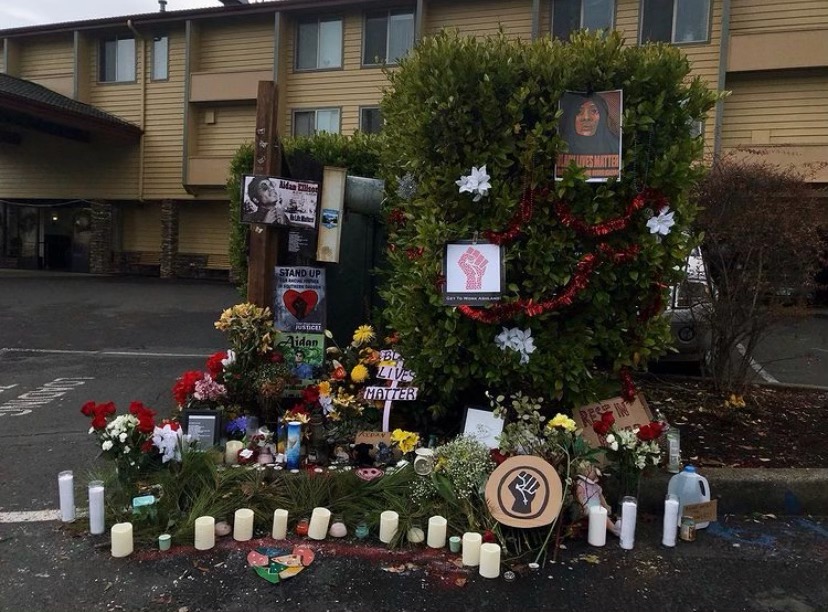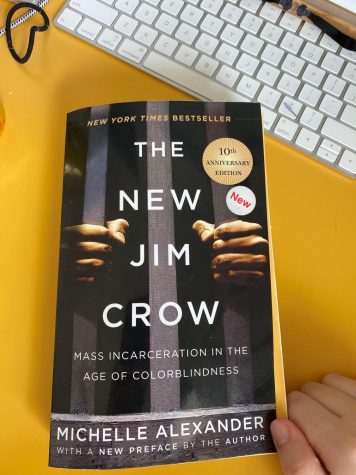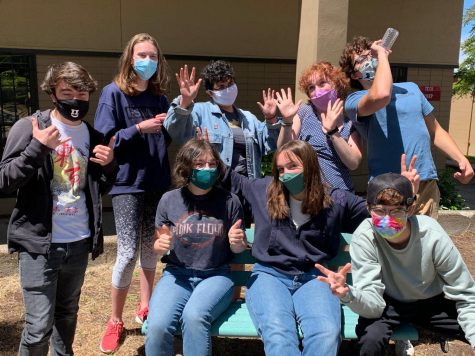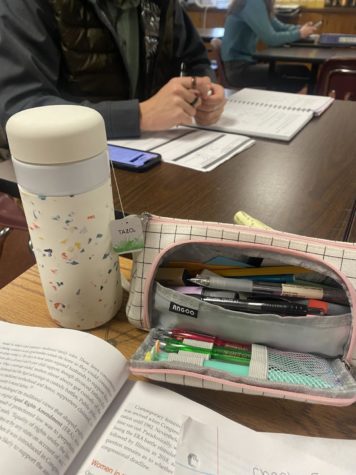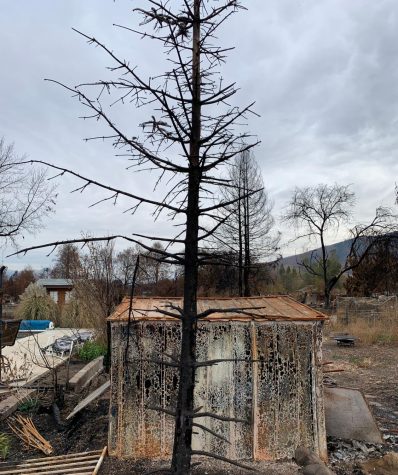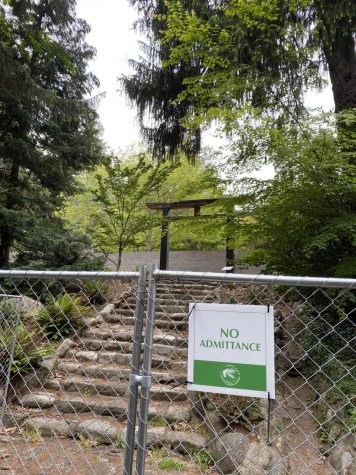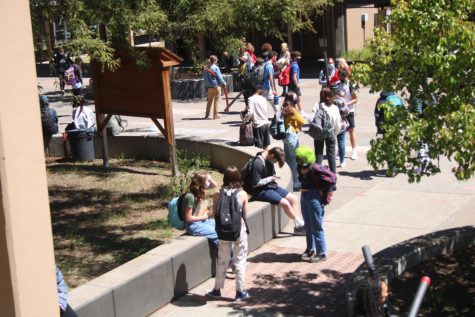Speculation of racially motivated shooting prompts questions of racial equity in Ashland
Here’s what students can do
Aidan Ellison, a black teenager, was tragically killed on November 23, 2020 in Ashland Oregon. Ellison and his shooter, Robert Keegan, were both residing in the Stratford Inn following the Almeda Fire. The Burger King that Ellison worked at had just been burned down in the fire, along with Keegan’s house. Ellison and Keegan got into an argument around 4 a.m. about the music that Ellison was playing out of his car in the parking lot. After asking Ellison to turn down his music and arguing for a while, Keegan went to his room and returned with a gun. He then fatally shot Ellison in the chest. Keegan claimed he shot in self-defense after Ellison punched him in the face. However, according to reports, the autopsy provided no evidence for this claim. The FBI has been called in to help with the investigation as Keegan is facing several charges, including second-degree murder and manslaughter. Keegan pleaded not guilty to all charges, and is currently being held at the Jackson County Jail without bail and is expected to be back in court on February 22 for a pre-trial hearing.
Ellison was a former student at Ashland High School from October 2017 to February 2018, before transferring to a GED program. Speculation that the shooting of Ellison was racially motivated prompted the Rogue News staff to reach out to young black individuals in the valley to amplify their perspective on life in Ashland. Siena Wand, AHS alum of 2020 and former president of the Black Student Union (BSU), shares her experiences.
“Overall at AHS what I notice the most, specifically with teachers and administration, is just extreme tokenism,” Wand explains. All throughout her high school career, she felt as though she was being shown off or presented. She wants to make it clear, however, that she did not feel as though it was hateful. “It’s well-intentioned, but it’s also an issue.” However, Wand mentioned how when she wanted to make BSU for black students only as a safe-space (while additionally offering another meeting for allies), the administration didn’t agree. “I just wanted to make a safe space for black and mixed students to share or vent, because you can’t find that anywhere else in Ashland.” Overall, Wand clarifies how while AHS has made progress to become more accommodating to their black student population, they still have a ways to go.
Equity, Diversity and Inclusion (EDI) plays a major role in how welcome students feel at school, which in turn can affect how they learn. Without a cohesive EDI plan, students may feel unsafe, which can mean they dread going to school or have trouble learning. Planning around EDI at AHS began several years ago as just the AHS staff having conversations about areas of inequity in the school. Throughout the years, EDI has changed from just conversations between staff members into having a staff position, several plans to help with student success and collaborative district and statewide plans for support. The EDI plan at AHS covers a number of things. Some notable features are an anonymous reporting system, an explanation of how staff will respond to an incident of discrimination and outlines for new 9th and 10th grade curriculum based around EDI. Changes are also being made statewide. On Monday, December 14, Oregon passed the “All Students Belong” Oregon Administrative Rule (OAR) which among other things requires schools to ban hate symbols, and have a plan to respond to “biased incidents.” Biased incidents are defined by this OAR as “a person’s hostile expression of animus toward another person, relating to the other person’s perceived race, color, religion, gender identity, sexual orientation, disability or national origin.”
Wand informs us of her experience as a person of color in Ashland, and how she navigates through the ever-present privilege within the valley. “Ashland is always referred to as a bubble, but that’s a choice. People are choosing to be ignorant. In my opinion, it makes people feel like they’re exempt from the issue.” The POC student community may already recognize the immense privilege and the facade of liberalism that Ashland puts up. When asked if she’d ever been scared living in Ashland, Wand responded “Totally,” without missing a beat. “When my brother goes to the store at nine at night, I don’t feel comfortable with him going and listening to music [in his car].” She points out how when she had box braids, she was followed by older white men on four different occasions. Wand expands further on how, when she lived in Los Angeles for a month earlier this year, she felt safer walking the streets there at night compared to in Ashland. “I felt way more comfortable walking through [Los Angeles] because you’re surrounded by people of every single ethnic background, every single economic background, and I just felt like I fit in better… L.A was way more accepting than Ashland has ever been.”
“Something that for me is really important is student collaboration and student voice,” said Becca Laroi, the Assistant Principal at AHS. “I think its key to bring students into those conversations from the very beginning.” An example of this commitment is including students in school site and district wide EDI committees so students’ voices can be heard, and their input taken into consideration. Andrea Townsend, the EDI director for Ashland School District, also echoed the need for student voice. While both Townsend and Laroi are relatively new staff members, they noted how far EDI has come at AHS. “We’ve really worked hard to put policies in place,” said Laroi, when asked about the evolution of EDI over the years. However, despite the huge steps made for EDI, she was clear that AHS still has a ways to go.
For students, there are steps that can be taken in the direction of allyship. If students are interested in growing in this manner, there are several resources in Ashland that allow one to be a less performative and a more effective ally. Ashland High’s Truth to Power club is hosting a series of workshops to combat racism in Southern Oregon. The workshops will aim to help recognize racism in all its forms, along with working to become better as individuals and a community. Truth to Power is asking all students to consider steps we can each take to make our community a better place.
To conclude, Wand would like to broadcast to the greater Ashland community a final message. “You have a lot more to work on than you think you do. Honestly, Aidan’s death just solidified all the things I already thought about Ashland. Just educate yourselves. Exercise what you preach.” Wand emphasizes that if the Rogue Valley really wants to support their black community, white allies need to start standing up for them and protecting them even when it gets tough. Allyship is more than making a sign and marching in the street.
The Ashland community hosted a skateboarding competition at the Ashland Skate Park this past Saturday, with proceeds going to Ellison’s family. To support the family of Aidan Ellison directly, a link to their GoFundMe can be found below.

